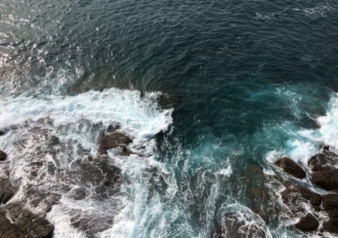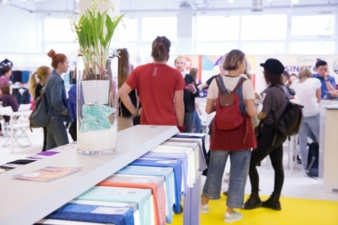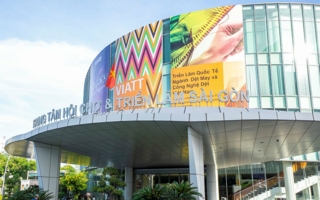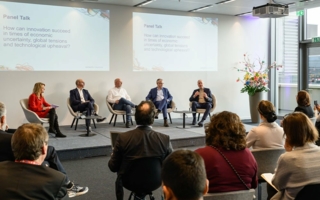20/11/2018 – Performance Days — auf Deutsch lesen
New approaches for clean water
The textile industry can protect and conserve our water resources! How? The Focus Topic at the Performance Days (28.-29. November) will show it.
The main topic at the next Performance Days deals with an essential subject that affects every phase of textile and clothing production: Clean Water! With the usual
professionalism, the Focus Topic of the next functional fabric fair shows which new technologies can protect and conserve water during the manufacture of textiles on November 28-29th.
The Earth's resources are finite!
This is true not only for our energy sources, but also our most important vital resource - Water. The textile industry, in particular, plays a very
significant role in creating waste water and water pollution in the production of fibres and fabrics. For example, about 25% of the insecticides used worldwide are consumed in the cultivation of conventional cotton, and textile finishing is among the industries with the most waste water in Germany (Source: Federal Environmental Agency).
The production of one kilogram of fabric requires up to 100l of water. In China, one of the largest producers of textile products, approximately two thirds of the drinking water resources are already heavily contaminated.
Water – Our Responsibility
Precisely for this reason, Performance Days decided, as the leading trade fair for functional fabric professionals, to put the spotlight on this topic and present comprehensive information at the next edition of the trade fair on November 28-29th, 2018. In cooperation with the exhibitors and experts from research and environmentalprotection institutes ways in which water pollution and consumption can be reduced along the entire value chain is shown.
The chain starts with fibres
This chain starts with the production of the fibres, from the planting of natural raw materials, through the spinning and dyeing processes, moving on to the packaging and care of the clothing by the consumer, and continuing right through the useful life of the textile.
The dyeing processes pollute our water, but so do the microplastic particles created during household washings because sewage treatment plants are only able to filter these out to a limited extent. Even clothes thrown into the garbage dumps - or even worse, tossed back into nature will decompose uncontrollably and contribute to pollution. Like tire abrasion, micro-plastics are also found in air and water and, therefore, are a topic for textile producers.
Comprehensive coverage with experts
The main theme "Water – Our Responsibility" has its own dedicated Boulevard in the exhibit hall with the name "Focus Topic & Marketplace" and is also the subject of expert discussion groups on the second fair day. The program is kicked off by Christian Lott, marine biologist for Hydra Marine, who now sees himself more as a synthetics researcher in light of the critical water status. Journalist Sophie Bramel will talk to guests about how to reduce waste pollution in our oceans in the panel discussion "Ocean Waste Fibres." Sustainability expert Anna Rodewald will lead another panel discussion on the possibilities of conserving water when dyeing fabrics and textiles and in her lecture "Water – the Bigger Picture,” Christina Jönsson from the Swerea Research Institute lays out a comprehensive concept.
In the final agenda item, Charles Ross and guests report how to reduce the volume of water consumed by the textile chain.
You find the full agenda HERE
Performance Days
28.-29. November 2018
Hall C1
Messe München, ?Riem





